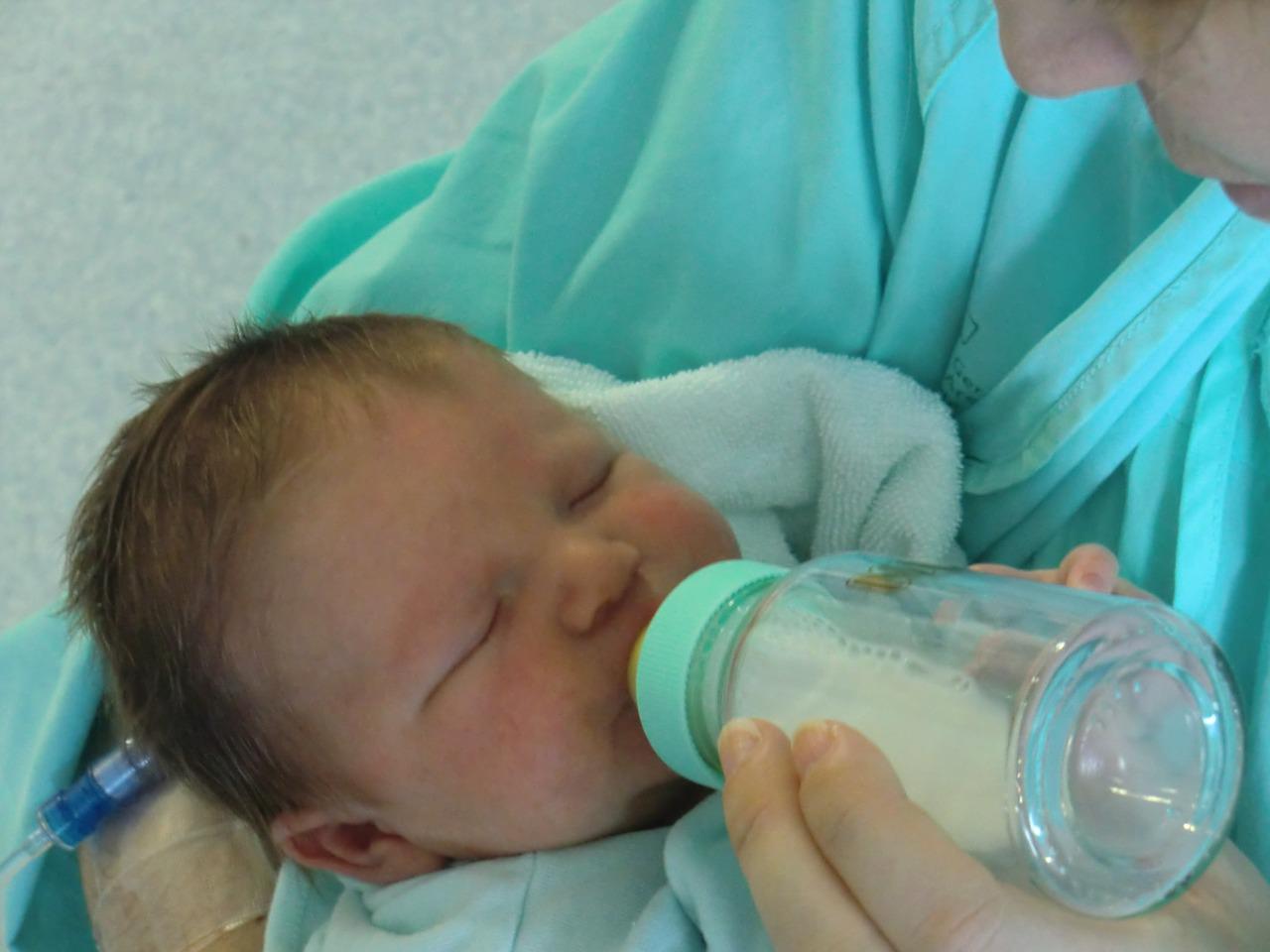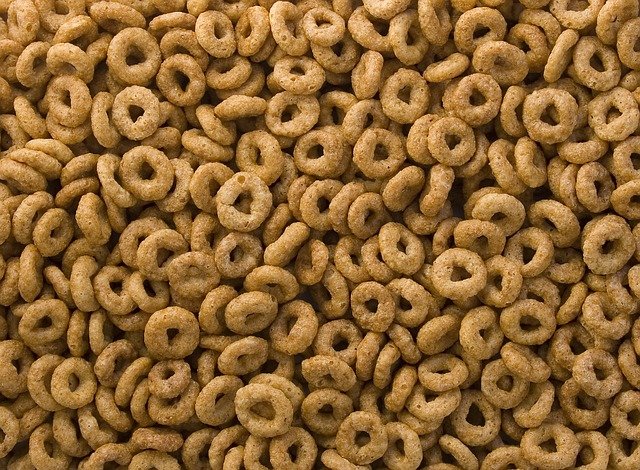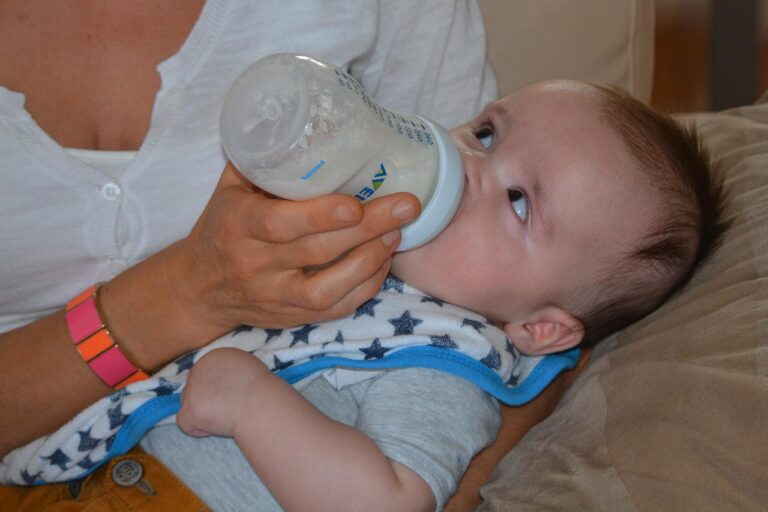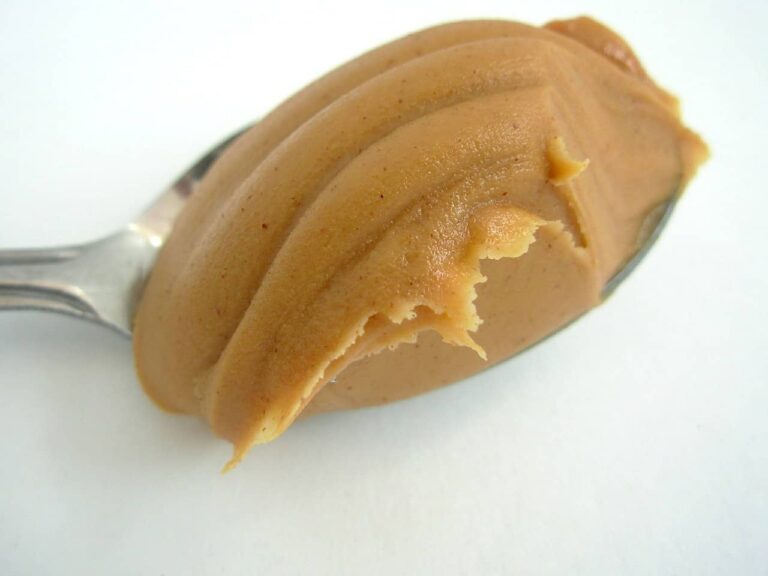Baby Coughing while Feeding from Bottle: How to Avoid
Many parents choose bottle-feeding to nurse their babies. Some prefer exclusively bottle-feeding their baby with either formula or pumped breast milk. Meanwhile, others combine both bottle and breastfeeding.
Bottle feeding is beneficial for a lot of mothers. Moms who have difficulty producing milk or are experiencing pain from breastfeeding can opt for bottle feeding. On the other hand, some moms bottle-feed if they are going on a long period of being unable to breastfeed because of an illness or trip.
But like breastfeeding, trouble can also arise while bottle-feeding your infant. From a poor feeding position to a physical ailment, your infant can experience coughing fits while being bottle-fed. So what can you do as a parent?
Skip To The Following Sections
Why is My Baby Coughing While Feeding From Bottle
Nobody likes to hear coughing, especially if it comes from a baby. But most of the time, coughing on its own is not a sign of a serious problem. In fact, coughing protects your baby’s airway by pushing out potentially dangerous and foreign objects.
However, coughing can disrupt a nursing session. If coughing frequently happens while you’re bottle-feeding your infant, then you might want to consider the following:
The Nipple is Not Compatible with Your Infant
Believe it or not, bottle nipples aren’t one-size-fits-all. Nipples come in a range of sizes. Choosing the right nipple for your baby comes down to their age and how much milk flow they can handle.
As a baby grows older, they will consume more milk. Thus, you will expect more milk flow from your bottle as you level up in nipple size.
However, different babies don’t develop at the same rate, so some infants might have trouble adjusting to a higher-level nipple. Babies who can’t handle the fast milk flow of a high-level nipple might cough while nursing.
You Need to Slow Down the Feeding
This reason is loosely connected to the previous one. But feeding your infant too much or too quickly can cause them to choke on their milk.
How will you know if your infant wants to stop receiving milk? You’ll likely see them turning fussy, crying, and pushing your bottle away. They might also spit out their milk with force. Of course, they can also have a coughing fit while they’re making a mess of themselves.
You’re Nursing in the Wrong Position
There are plenty of nursing positions that you can find out there, from cradle hold to football hold. However, some nursing techniques can cause problems.
While dangle feeding works best for breastfeeding mothers who have clogged ducts, it isn’t an optimal option for a bottle-feeding baby. Putting your infant on their back while bottle-feeding can cause milk to flow into their mouth even while they’re not sucking. And as mentioned above, too many fluids can cause coughing, spitting, and choking.
Your Baby is Choking
Choking can occur when milk (or any foreign objects, for that matter) partially blocks your infant’s airway. It’s a sign for you to take the bottle away. Avoid patting or slapping your infant’s back while they’re coughing because it might push the milk further into their airway.
If your infant stops coughing, immediately look for signs like bluish skin and lips, inability to breathe, and arm waving. Call paramedics at your home as soon as possible.
Your Baby is Experiencing Aspiration
Aspiration is a bit similar to choking. Patients of both conditions experience having something going into their airway by accident. However, unlike choking, aspiration doesn’t completely block your airway, and it happens silently.
Aspiration is linked to dysphagia, a condition that makes swallowing hard. Babies with conditions like GERD, a cleft palate, Down syndrome, and cerebral palsy can experience aspiration.
Signs and symptoms of aspiration include coughing, changes in breathing patterns, watery eyes, wheezing, and fever. Aspiration will require a visit to the pediatrician.
How Do I Prevent Coughing While Bottle-Feeding My Infant
Small changes in your nursing techniques can go a long way. If you notice your child is having problems exclusively while nursing, you can adjust how you feed your infant to better suit their needs.
You can start by changing your bottle’s nipple if your baby can’t keep up with the milk flow. You can go down a level until your baby can handle drinking more milk.
A change in nursing position can also help immensely. You should also avoid leaving your baby lying while a bottle is propped against an object. Always hold and support your infant’s head and body while bottle-feeding them so they can swallow their milk properly.
Finally, contact your doctor if you suspect your infant is choking or experiencing aspiration. Both conditions can be fatal for your child.
Common Causes of Coughing While Bottle-Feeding
Coughing fits during bottle feeding can be caused by various factors, and it’s important to understand the common culprits behind them. While we have already discussed some possible reasons, let’s explore a few more potential causes to provide you with a more comprehensive understanding.
Allergies and respiratory infections can lead to coughing episodes while your little one is being fed. If your baby has a history of allergies or shows symptoms such as sneezing, watery eyes, or congestion, it’s worth considering this as a possible cause. Similarly, respiratory infections like the common cold or bronchiolitis can irritate the airways and trigger coughing during feeding.
Reflux, a common condition in infants, can also contribute to coughing. When stomach contents flow back into the esophagus, it can irritate the throat and lead to coughing. Keep an eye out for signs of reflux, such as frequent spitting up, discomfort after feedings, or difficulty gaining weight.
In some cases, babies with underlying medical conditions like asthma or chronic lung diseases may experience coughing fits during bottle-feeding. These conditions can make the airways more sensitive and prone to coughing. If your little one has a known medical condition, it’s crucial to work closely with your pediatrician to manage their symptoms effectively.
Remember, identifying the cause of your baby’s coughing is essential for finding the most appropriate solution. If you suspect any underlying medical issues or if the coughing persists, it’s always a good idea to consult your pediatrician for further evaluation and guidance.
Techniques for Easing Coughing and Promoting Comfortable Feeding
Fortunately, there are several techniques you can try to help ease coughing and create a more comfortable feeding experience for your little one. Let’s explore some practical tips that can make a difference.
Firstly, adjusting the feeding position can make a world of difference. Try keeping your baby in an upright or slightly inclined position during bottle-feeding. This can help prevent milk from flowing too quickly into their mouth, reducing the likelihood of coughing or choking. You can also experiment with different feeding positions, such as holding your baby more vertically or using a semi-reclined position, to find what works best for them.
Another useful tip is to pace the feedings. Offering smaller, more frequent feeds can help prevent your baby from becoming overwhelmed and coughing due to an excessive milk flow. Take breaks during the feeding session, burping your baby gently to release any trapped air and give them a chance to rest before continuing.
Choosing the right bottle and nipple can also play a crucial role in reducing coughing. Opt for bottles with anti-colic features or those designed to control the flow of milk. Slow-flow nipples might be more suitable for babies who struggle with a fast milk flow, while medium or fast-flow nipples can be introduced gradually as your baby grows and becomes more adept at handling larger amounts of milk.
Remember, every baby is unique, and what works for one may not work for another. It’s essential to observe your baby’s cues and responses during feeding and make adjustments accordingly. By finding the right balance of feeding techniques and adapting to your baby’s needs, you can help minimize coughing episodes and create a more enjoyable feeding experience for both of you.
If your baby’s coughing persists despite your efforts or if you have any concerns, don’t hesitate to reach out to your pediatrician. They can provide personalized guidance, offer further evaluation if necessary, and ensure the well-being of your little one.
Incorporating these sections into the article can provide you with a more comprehensive understanding of the potential causes of coughing while bottle-feeding and offer practical strategies to address the issue effectively. Remember, always consult with a healthcare professional for personalized advice and guidance specific to your baby’s needs.
FAQ:
Why Does My Baby Cough While Bottle Feeding?
Babies coughing while being bottle-fed can happen for a multitude of reasons. Your baby might have the wrong bottle nipple size, is in an uncomfortable position, or is experiencing aspiration.
What Can I Do at Home to Stop My Baby From Coughing?
Immediately stop feeding your infant if they appear to be coughing and struggling. Watch out for other symptoms, like changes in breathing patterns and facial expressions.
What Should I Do if My Baby Doesn’t Stop Coughing?
You can contact your pediatrician if you’re concerned for your baby. Tell your doctor how the cough sounds, how long it has been occurring, and what other symptoms your child is experiencing.
Conclusion
Coughing fits are no fun while you’re nursing your baby. It disrupts the flow of your routine and can make your child feel uncomfortable. While the occasional cough here and there is no problem, repeated coughing can be concerning.
In most cases, you can solve coughing fits with a change in your nursing routine. However, if coughing is a recurring problem, then you might want to go have a trip to the doctor.
Bottle feeding has its differences compared to breastfeeding. But both practices share plenty of techniques with each other. So whether you’re breastfeeding or bottle-feeding, you’ll always want to keep these practices and precautions in mind.












